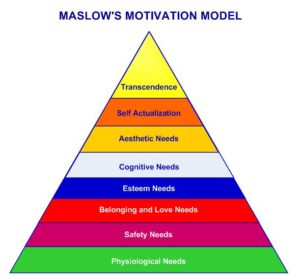
MODULE 1
Module one is designed to introduce the student to the fundamental concepts of legal and economic institutional training and describe some basic problem-solving applications. This module covers units of measurable objectives, scientific reasoning, deductive reasoning, and economy notation. The principles of data assessment and organizational structure are also presented in this module as well as an introduction to career exploration.
Learning Outcomes
Upon completion of this module the student will be able to:
- Describe the historical perspective of social order.
- Describe some of the important areas where the monetary structure is applied.
- List examples of common legal components.
- Define the basic units of economic measurements.
- Describe the legal system of crime and punishment measurement.
- Be able to express thought in scientific reasoning.
- Interpret deductive reasoning for creating an educational system.
- Define economy notation.
- Describe basic organizational structure.
- Explain the principle of career positions in the legal and financial fields.
- Interact with different peer personalities.
MODULE 2
Module two covers studying and redefining cognitive behavioral and developmental habits, and presents an introduction to the social development in adolescence, and the concept of internal resistance. The student will learn to identify how they create obstacles to change and how to effect change itself by solving problems and design strategies to evaluate those changes.
Learning Outcomes
Upon completion of this module the student will be able to:
- Describe how adult’s values are defined.
- Explain the purpose of double standards.
- Define focus and non-focus.
- Express their feelings without fear and determine where it can be applied in their relationships with others.
- How to manage time and set priorities to needs over wants.
- Explain the meaning of positive development and negative development.
- Evaluate realistic goals and objectives.
- Define internal self-resistance. Explain the purpose of why and why not.
- Resolve social and academic issues without violence or self-medication.
MODULE 3
Module three teaches the student’s the principles of direct interaction with adults, decision making, and real-life consequences for their behavior. Guest speakers, such as College Admissions directors, Law Enforcement personnel, State agency staff from Child Support, Health Care and Career planners are emphasizing practical design and qualifications for entrance and troubleshooting considerations for avoiding future obstacles. An introduction to college’s campus and active interaction with college students is also covered in this module.
Learning Outcomes
Upon completion of this module the student will be able to:
- Define the terms and requirements for high school graduation.
- Explain the two basic types of college entrance tests.
- Learn health risk factors.
- Describe the principles of cost factors for child support.
- Understand the legal and financial responsibilities of becoming a teen father.
- List the three types of crime categories and four groups of crime.
- Explain the difference between probation and parole.
- Understand how a juvenile offense can be used to disqualify you from college.
- Understand the academic structure of college.
- Understand the educational qualification for high salary career choices.
MODULE 4
Module four will provide the student with an overview of their student self-evaluation and their preparation for college or entrance into the workforce. The student will learn how to complete their admission requirements with their parents, establish bank accounts, as well as planning for emergencies and coping with possible academic obstacles. An introduction to local employers is also presented in this module.
Learning Outcomes
Upon completion of this module the student will be able to:
- Evaluate strengthens and weakness entering their final year of high school.
- Define their future goals.
- Describe the purpose for establishing a bank account.
- Determine the final steps that are required for college entrance.
- Explain the purpose of completing high school.
- Name two teachers for college recommendation letters.
- Describe the basic operation of building a strong family.
- Understand how to manage their earnings.
- Determine where they will be next year.
- Have a three to four year work history.